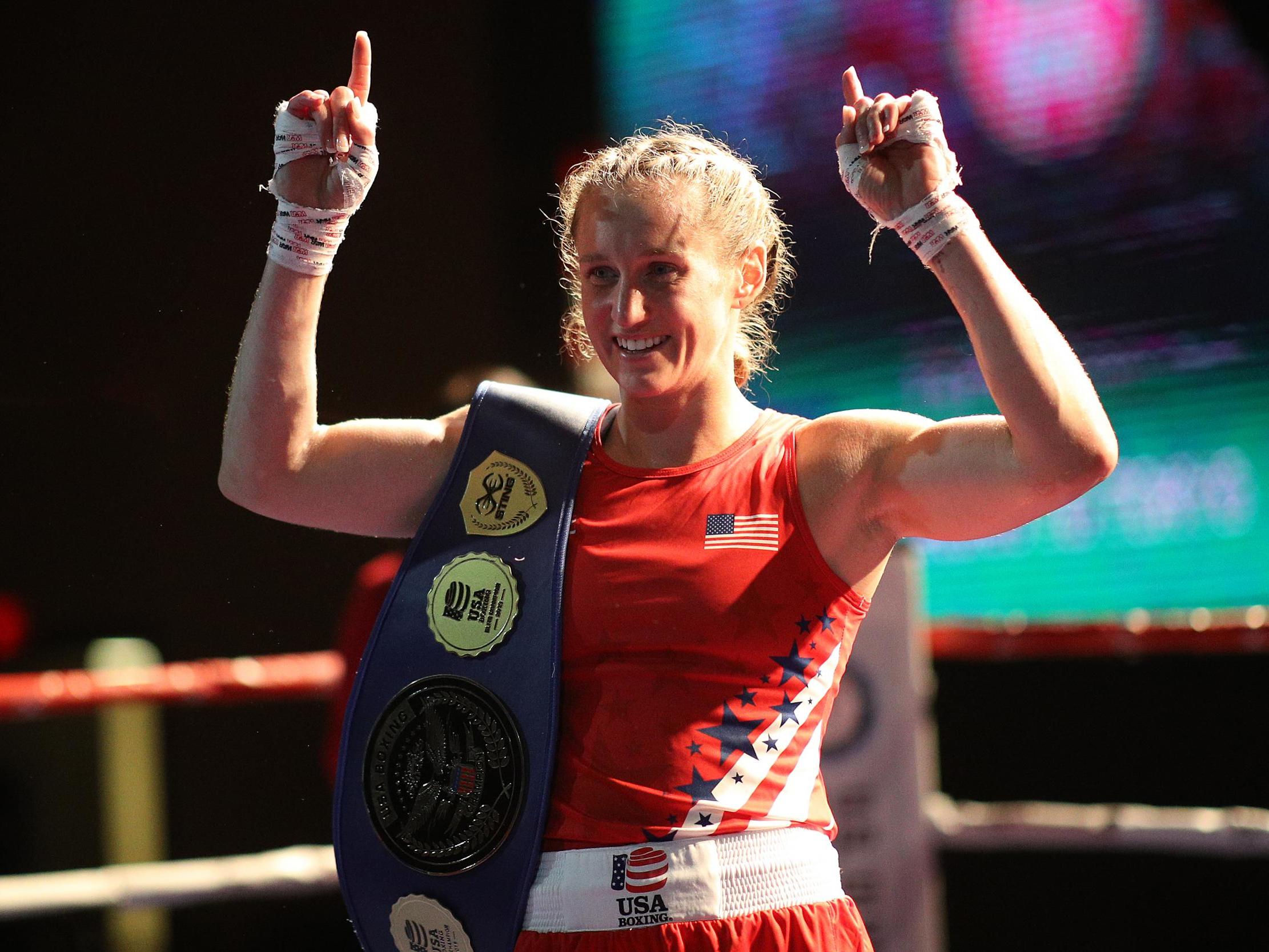US Olympic boxer Virginia Fuchs escapes ban after claiming failed drugs test caused by sex
The flyweight's sample from an out-of-competition test in February flagged two of Wada's banned substances

Your support helps us to tell the story
From reproductive rights to climate change to Big Tech, The Independent is on the ground when the story is developing. Whether it's investigating the financials of Elon Musk's pro-Trump PAC or producing our latest documentary, 'The A Word', which shines a light on the American women fighting for reproductive rights, we know how important it is to parse out the facts from the messaging.
At such a critical moment in US history, we need reporters on the ground. Your donation allows us to keep sending journalists to speak to both sides of the story.
The Independent is trusted by Americans across the entire political spectrum. And unlike many other quality news outlets, we choose not to lock Americans out of our reporting and analysis with paywalls. We believe quality journalism should be available to everyone, paid for by those who can afford it.
Your support makes all the difference.U.S. Olympic boxer Virginia Fuchs has had a failed drugs test cleared after blaming it on having sex with her boyfriend.
The United States Anti-Doping Agency (Usada) determined that her sample, which contained two banned substances (letrozole metabolite and GW1516 metabolites), was transmitted through intercourse.
The 32-year-old flyweight’s sample, which contravenes World Anti-Doping Agency (Wada) rules on banned substances, was taken at an out-of-competition urine test on 13 February.
“The low amounts of letrozole metabolite and GW1516 metabolites detected in her sample were consistent with recent exposure to the substances via sexual transmission,” the USADA said it had determined in its investigation.
The anti-doping body said Fuchs’s partner had been using therapeutic doses of the two substances and that Fuchs bore no fault or negligence for the adverse finding and would therefore not be banned.
“We strongly believe this case and others like it, including meat contamination and prescription medication contamination cases should be considered no violation,” USADA chief Travis Tygart said.
Fuchs narrowly missed out on qualifying for the Rio Olympics in 2016 and has now set her sights on next year’s delayed Tokyo Games.
“This has been a huge lesson for me and now that is over, I’m fully focused on preparing for Tokyo,” she wrote on Twitter.
The usual punishment for the use of banned substances is a four-year ban from all WADA-compliant sports.
In 2017, USADA allowed middle-distance runner Ajee Wilson off without a suspension, concluding that traces of an anabolic agent in her sample had come from contaminated beef.
Reuters also contributed to this report
Join our commenting forum
Join thought-provoking conversations, follow other Independent readers and see their replies
Comments